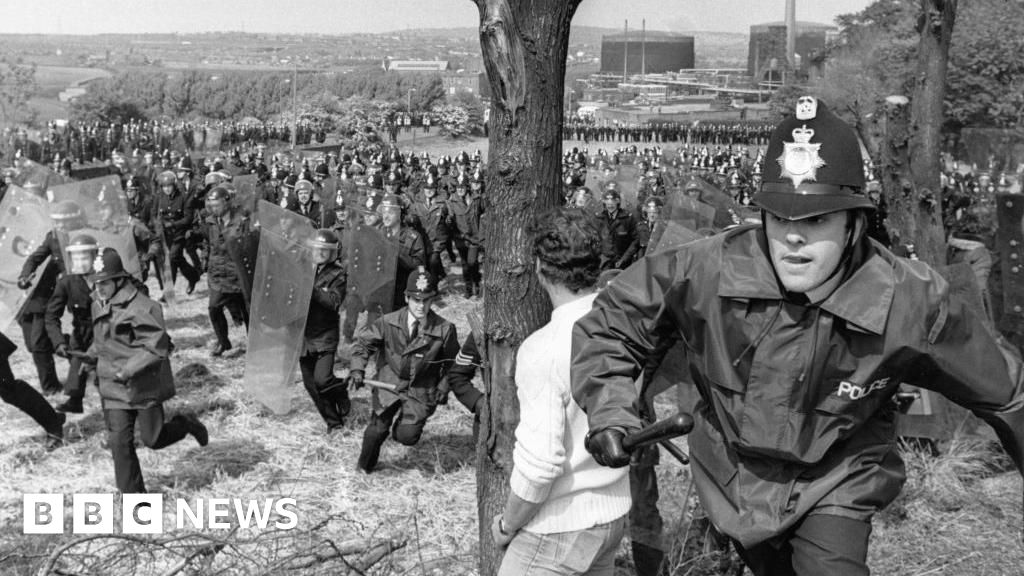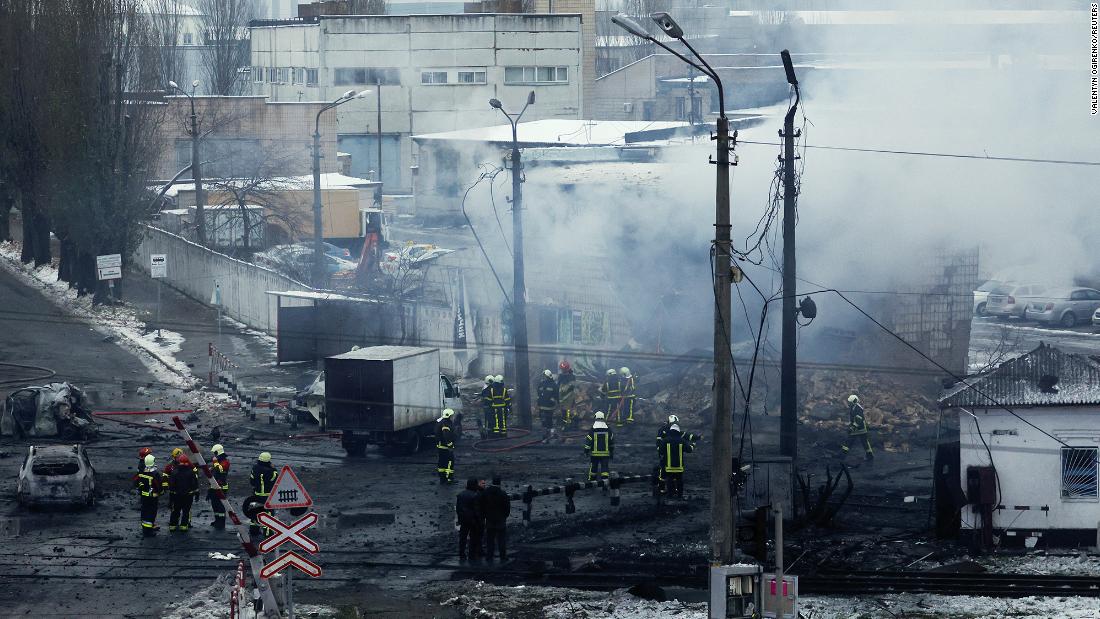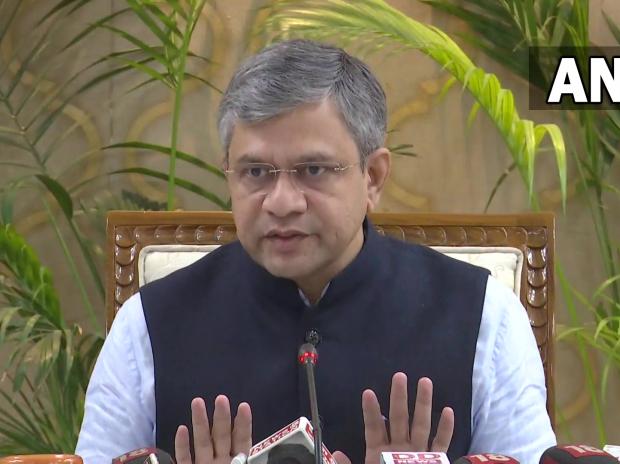By Jordan Davies, BBC News
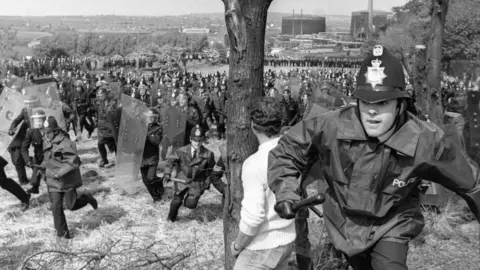 Getty Images
Getty ImagesThe bloodiest day of the 1984 miners’ strike was orchestrated in Downing Street, the senior legal adviser to the Welsh government has said.
Counsel general for Wales Mick Antoniw has called on the new Labour UK government to deliver on its promise of an inquiry into violence at Orgreave as soon as possible.
The BBC has taken miners back to the South Yorkshire town to re-live the most “frightening” day of their lives.
But Robert Griffiths, a former police officer from Denbigh who volunteered to work at Orgreave, has accused miners of attacking police horses.
The Battle of Orgeave, as it came to be known, was a pivotal moment in the year-long miners’ strike and one of the most violent episodes in British industrial history.
Striking coal miners from across Britain descended on the coking plant to try and disrupt deliveries – they were met with force by thousands of police officers.
Miners threw stones at police lines, and mounted officers charged at picketers, followed by specialised units known as “snatch squads”.
At least 120 miners and police officers were injured in the violence.
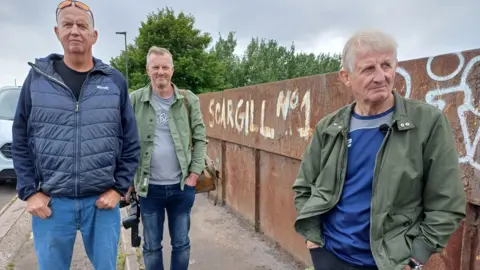
“A massacre. That day was the most frightening day of my life and I’ve carried a man out from underground who was killed.”
Ron Stoate, 74, was vice-chairman of the Penallta Lodge in Rhymney Valley and was at Orgreave on the day of the violence.
“We walked into a well planned and well orchestrated attack from the police.”
The Orgreave coking works are now long gone, but standing on a hill overlooking the town Ron said the “bitterness and anger” he feels is as strong now as it was four decades ago.
Ron has called on the new Labour government to deliver on its promise of an inquiry as soon as possible.
“I will never forget it.”
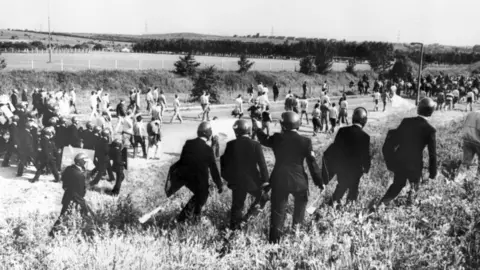 PA Media
PA MediaThere have been calls for an inquiry for the past 40 years, spearheaded by the Orgreave Truth and Justice Campaign.
Ninety-five miners were arrested that day and 55 were charged with riot, which at the time was punishable with a life sentence.
Another 40 miners were charged with unlawful assembly, but their trials collapsed when police evidence was deemed unreliable.
Labour committed to an “investigation or inquiry” into events at Orgreave in the party’s manifesto.
BBC Wales asked the UK government when it may begin and how it would be carried out and was told: “Information will be set out in due course but there is no detailed information we can share as of yet.”
Lord Heseltine, who was a minister in prime minister Margaret Thatcher’s cabinet at the time, declined to be interviewed.
Now Mr Antoniw, who as a young solicitor represented miners arrested at Orgreave, has urged the new Labour government in Westminster to launch an inquiry.
He said: “It is my strong belief that those decisions came from Downing Street, they came from the top of government.
“It was a political decision to directly intervene in the miners’ strike and basically to give the miners a good beating, to teach them a lesson, to make an example of them by long prison sentences.”
He believes there are parallels between Orgreave and the Hillsborough disaster, which was also policed by the South Yorkshire force.
Mr Antoniw believes that, had justice powers been devolved to Wales, miners prosecuted during the strike would have now been pardoned, like in Scotland, where ministers are in charge of justice.
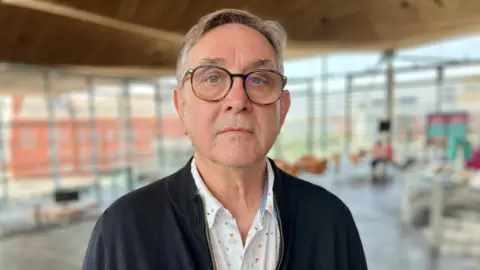
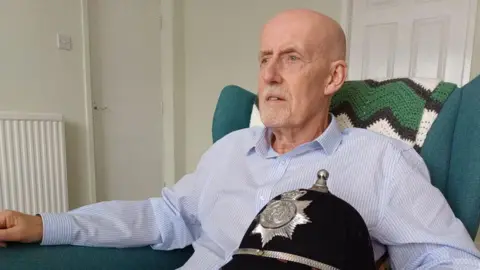
Police officer Mr Griffiths said he feared for his life that day and there was violence on both sides.
“Missiles started being rained upon us – ball bearings, bricks and bits of metal”, he said.
“I turned to a colleague, Stan, and I remember saying: ‘I think we’re gonna die here’.
He said he remembered some miners targeting police horses, including one who “punched the police horse in its face”.
He said when his colleague pulled the reins and the horse’s head “went smash straight into that miner”, the striker asked him: “What are you gonna do about that?”
To which the officer replied: “Absolutely nothing, you deserved that.”
He added: “The war with the miners had to be won. I was one of Maggie’s boys, I knew I was a tool being used by the government to beat the miners.”
Mr Griffiths does not think there should be an inquiry as “it’s history, and I believe it should be left as history”.
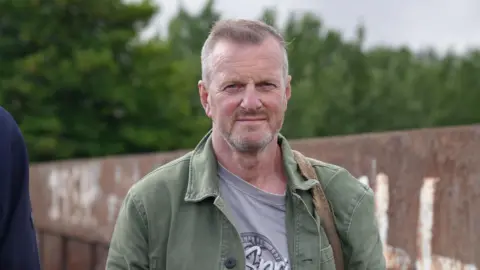
Photographer, Roger Tiley, 64, was arguably closer to the action than any other photographer that day as he was among the miners.
He called it “by far the worst day of my life” and believes events were orchestrated for the media.
“There were television cameras placed strategically on a building and there were press photographers on the side.
“The police were just crazy, it seemed like they just wanted to hurt the miners and anyone else that got in their way.
“I must have lost my films from my bag, so I came back with nothing, I was very embarrassed about it.”
He said he did not tell anyone he was at Orgreave for “10 or 20 years”.
Like Ron, Roger believe there should be an inquiry as soon as possible: “I was a witness to something which I hope will never happen again, which was horrendous, which was a nightmare.”
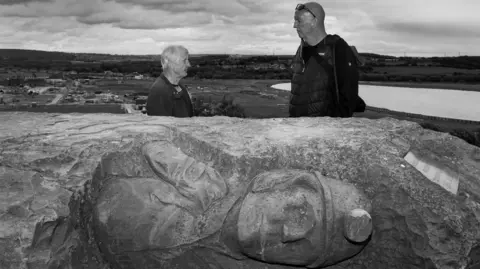 Roger Tiley
Roger TileyAlan “Tal” Jones, 66, was a surface worker at Cynheidre Colliery in Carmarthenshire when he travelled to Orgreave.
He said he was brought up to respect the police, but that all changed after Orgreave.
“It scarred me a bit to be honest with you, I will never ever forget it.”
Like the other men, he now wants the Labour government to hold a full inquiry.
“There has to be – not one policeman was sanctioned for the actions they took on the day – it’s time for the truth.”
Ron Stoate said it was not only his job that was taken from him when the pits closed.
“I ended up in a host of rubbish jobs, earning rubbish money and struggling just to keep my morale up.
“People will never understand the bitterness I feel about what happened that year, and especially that day, coming back awakens all that.
“I just feel gutted – there should be an inquiry – people should be held accountable.”
South Yorkshire Police said in a statement: “It would not be appropriate for the South Yorkshire Police of today to seek to explain or defend the actions of the force in 1984 as everyone involved in policing the miners’ strike has long since retired and the information we hold has not been properly assessed.”
Note:- (Not all news on the site expresses the point of view of the site, but we transmit this news automatically and translate it through programmatic technology on the site and not from a human editor. The content is auto-generated from a syndicated feed.))
